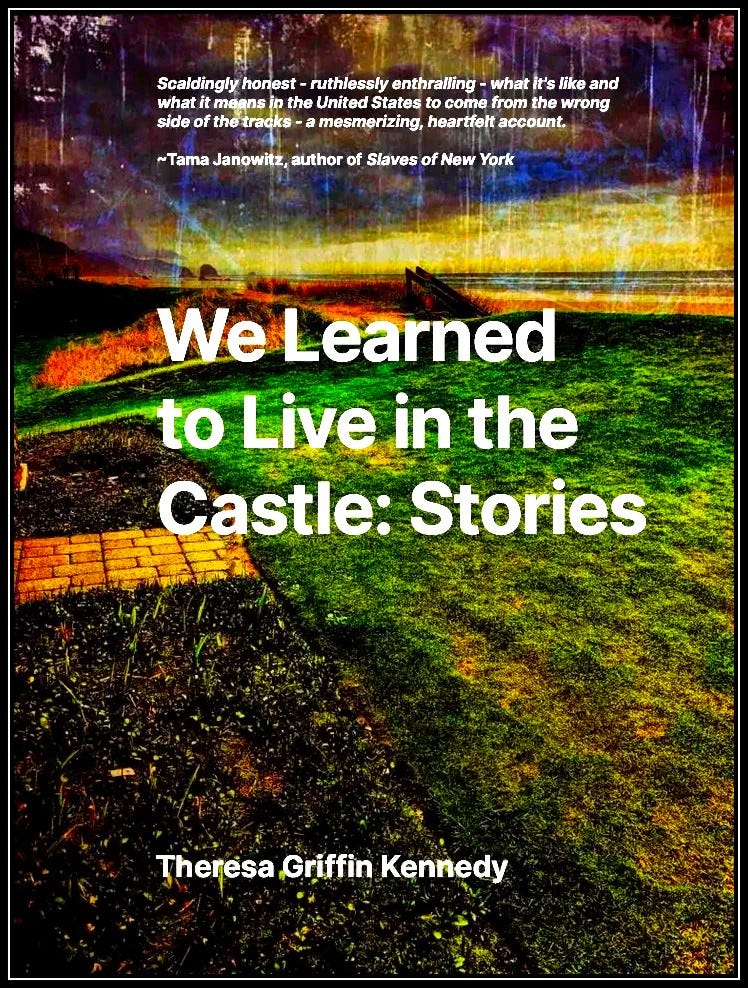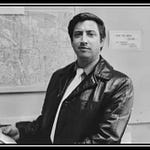I feel incredibly grateful to have an amazing introduction, which I’m sharing here, for my upcoming book, We Learned to Live in the Castle: Stories, by Marilyn Deutsch! I’m really happy about this book. I feel it shares the complexities of a life and how we struggle to persevere and not give up the fight to make our life better and not give in to despair and heartache.
~Theresa Griffin Kennedy
Below is the introduction by Marilyn Deutsch…
“I should begin this introduction to Theresa Griffin Kennedy’s memoir, “We Learned to Live in the Castle: Stories,” with a deep sigh. And it is not a sigh of relief. I took a lot of deep breaths while I read Theresa’s memoir of growing up in Portland, Oregon in the late 1960s, 70s and 80s. Her adult life in the 90’s and 2000s was also often despairing.
If I was a sociologist, I would describe Theresa’s world as the world of the underclass. You can count the ways: a fragile and angry mother, an absentee father, foster homes, rental homes, divorce, child rape, more foster homes, stoners, hook-ups and lovers, motel maid jobs, violent relationships, divorce, more relationships, more divorce.
Theresa shows us the world of the neglected and the forgotten. Her Portland is not trendy nor cool. Not hip nor hipster. If the city was busy in the 1970s, 1980’s and 1990s becoming a progressive never-never land in the northwest corner of the U.S., that raw nervy urban drive was not a part of Theresa’s upbringing.
Theresa’s Northwest Portland neighborhood was one of “twisted and collapsed” metal fences. Fun was throwing life-like dummies at drivers to make them think they’d run over someone. Some of her teenage years were spent in Southeast Portland foster homes where a walk to the convenience store for corn chips and apple juice was recreation. She writes of one of the foster homes as being a “chaotic environment of kids raising themselves with no adult supervision…”
Theresa’s stories are populated with the dejected and the rejected. She was a young woman who used sex when she felt like it and was used by sex when she didn’t want that and didn’t always understand that. It’s ugly and it’s complicated. (I can’t tell you how many times I wanted to jump into one of Theresa’s stories and give her at the very least a friendly bear hug, if not a full-on maternal “I want to make this better for you” hug.)
As a former TV news reporter, I’ve seen people like the younger Theresa and others who live in these stories and essays. I wish I had read this book while I was still out on the streets reporting. It might have given me another understanding of just how cheerless – and dare I say “futile” their lives. I know calling any life “futile” is exceptionally cruel. And no life is truly like that, but I think there is an undeniably brutal point to Theresa’s essays: She forces us to stare into those living vicious lives – where the same person is both victim and perpetrator and no one knows any other way. These are slash-and-burn lives and Theresa doesn’t look away.
And yet, Theresa is one of them and not one of them. She is smart and when she wants to be, determined. Her parents, no matter their faults, were both educated and intelligent. And even if there wasn’t a stable, loving home, there was undeniable love between mother and daughter and between father and daughter. That made a difference. Still, Theresa could have ended up like others we meet in her essays -- living a life of only dead-end jobs with dead-end lovers and dead-end husbands, dead at an early age.
If you are a Portlander, you will recognize the streets where Theresa lived and that makes these stories all the more difficult to read, because these streets are your streets too, the streets we all call home.
And for all that is dreadful, disturbing, and troubling, there is also joy. When Theresa writes about being a mother to her daughter, we can finally take that big sigh of relief.
So breathe deeply and read “We Learned to Live in the Castle: Stories,” – you may find a Portland you may not know and may not wish to know but should know. Or you may find a Portland you know all too well – and in that case, now you know you are not alone.
~Marilyn Deutsch, Former reporter with Fox 12 Oregon/KPTV”
~Theresa Griffin Kennedy













Share this post